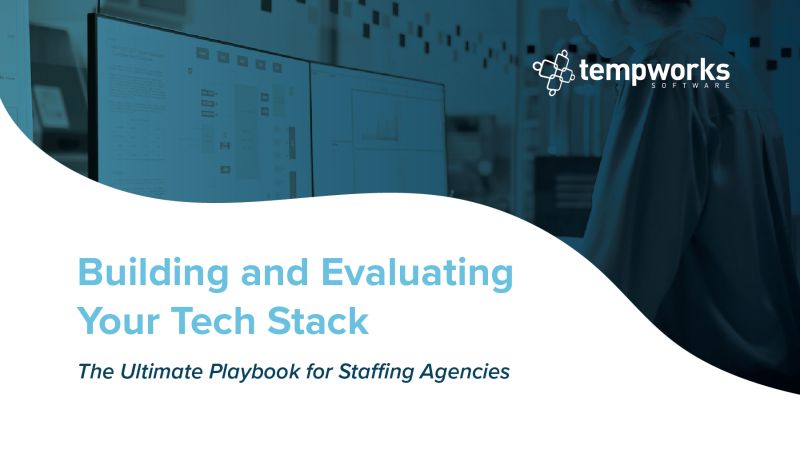
We often hear the word “ghosting” in the context of dating and friendships, but ghosting also happens in the workforce—whether it’s during the interview process or on the job.
For staffing companies and employers, this phenomenon can be costly.
Learn more about how ghosting can impact your agency and what you can do to combat it.
What is ghosting?
Ghosting refers to the act of cutting off all contact with another person without any explanation or communication. In hiring, ghosting refers to when:
- a candidate fails to show up for an interview
- a candidate no-shows for the first day of work
- an existing employee stops showing up for work, quitting without notice
Why do candidates and employees ghost?
Ghosting is easy to do, especially when communicating through email or text. Even the most qualified candidates may ghost due to guilt, anxiety, or conflict avoidance.
Reasons your candidates are ghosting you include:
- They are overwhelmed by the hiring process, finding it too difficult or complicated
- They are no longer interested in the role
- They found a job opportunity somewhere else
What is the impact of ghosting on the staffing industry?
Ghosting is detrimental to employers and staffing agencies, who invest time and money into recruiting and hiring candidates.
Because it’s a candidate’s market, ghosting has become more prevalent. Candidates often have multiple options for employment during their job search. If they choose to take another offer, they may choose not to communicate with you.
When recruiters are already struggling to fill job orders, no-shows for interviews or the first day of work can cost your agency valuable time and money.
Employers, too, spend money on hiring and training a new employee. According to SHRM, the average cost to hire is estimated to be $4,425. When an employee ghosts an employer, they lose that investment. Employers are then stuck with a role empty longer than anticipated.
How can the staffing industry work around ghosting?
Your first defense against ghosting is to streamline your processes. Take advantage of digital tools that make it easy for candidates to apply for jobs, interview with recruiters, and complete paperwork. When candidates feel supported on their employment journey, they are less likely to ghost you.
- With TempWorks integrations, you can set up messaging to automatically reach out to your candidates, saving your recruiters an enormous amount of time. If someone does ghost you during the hiring process, you’ve lost less time and money during the process.
- Recruiters used to schedule in-person interviews days in advance. Now, the convenience and ease of virtual interviews makes it possible to schedule an interview within the hour.
- Messaging tools integrated into TempWorks can also help your recruiters send out interview confirmations, reducing the likelihood that a candidate will miss their interview.
- With so many applicants applying from their phones, make sure to optimize your application process for mobile devices. When your applications are fillable from mobile devices, your candidates can send applications at their own convenience. This leads candidates to be more likely to apply for jobs (which is helpful for recruiters who are struggling to fill certain job orders) instead of giving up halfway through the process.
Ghosting will always be there, especially in a candidate-driven market. But by leveraging technology, staffing agencies can get creative about how they connect with candidates, which reduces the frequency and impact of ghosting.

